
्यमेववैष वृ्ु्े ्ेन लभ्यः
It is attained by him alone whom It chooses (Kathopanishad. 1.2:23)
A Bengali gentleman, staying in the western frontiers of pre-independence India, had deep love for God. One day he was possessed with the agony of not having realised God. He became madly restless. The thought so pained him that he went to jump from the top of a hill and kill himself.
A cowherd boy saw him and said, “What are you doing?”
Thus obstructed, he eagerly asked the boy, “Shall I realise God?”
The boy immediately replied, “Surely you will.”
The man took this assurance as from God himself, and returned to Bengal.
While returning, he inexplicably got down at Bally railway station. In those days Bally was the nearest stoppage to reach Dakshineswar. Alighting in this unfamiliar place, the bewildered man, as if drawn by an invisible force, crossed the river Ganga and came to Sri Ramakrishna at Dakshineswar.
This was Kedarnath Chattopadhyay. Formerly, he used to live at Lahore. At first he frequented the Brahmo Samaj and joined other religious sects in his search for God. Now this divine pull made him an ardent devotee of Sri Ramakrishna. His first visit was in 1880. He is referred to as Kedar in The Gospel of Sri Ramakrishna.
Esta historia es de la edición November 2020 de The Vedanta Kesari.
Comience su prueba gratuita de Magzter GOLD de 7 días para acceder a miles de historias premium seleccionadas y a más de 9,000 revistas y periódicos.
Ya eres suscriptor ? Conectar
Esta historia es de la edición November 2020 de The Vedanta Kesari.
Comience su prueba gratuita de Magzter GOLD de 7 días para acceder a miles de historias premium seleccionadas y a más de 9,000 revistas y periódicos.
Ya eres suscriptor? Conectar

Panchakroshi Parikrama of Varanasi
At the snow-capped Kailas, the Divine Lord Shiva was seated with Mother Parvati.
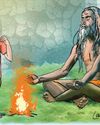
Gadai and the Monks
A fictional narrative based on incidents from the childhood of Sri Ramakrishna.
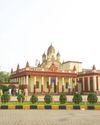
Chintayo momo maanosho Hori...
Sri Ramakrishna loved songs. There probably was no normal day when he did not sing some songs.
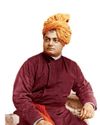
The Vedanta Vaccine
The world is still struggling under the impact of the pandemic due to Covid-19 for the last three years.
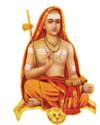
Chandrakirti's Chariot: Self in Madhyamaka Buddhism and Advaita Vedanta
The goal in Advaita Vedanta is the cessation of suffering and the attainment of true fulfillment. Suffering, according to this school, is due to ignorance of the true nature of the self and consequent erroneous identification with the body-mind.
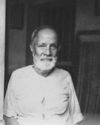
Reminiscences of Sargachhi
Question: यद्यदाचरतत श्रेष्ठसतत्तदरेवरेतरो जनिः। ‘Whatever a superior person does, others do the same thing!’ (Gita 3:21) – What does this statement mean?
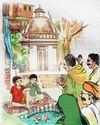
THE AUTUMN FESTIVAL
A fictional narrative based on incidents from the childhood of Sri Ramakrishna.
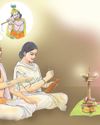
Bards of Guruvayur: Vilwamangalam II
Saints of India
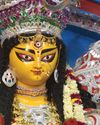
In the Universal Mother’s Divine Playground
Swami Vivekananda never taught the worship of Mother Kali. In a letter to Mary Hale he writes, “Kali worship is not a necessary step in any religion.
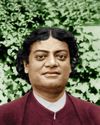
Swami Vivekananda: A Sportsman Par Excellence
In various books and articles, Swami Vivekananda has been called a spiritual leader, a prophet, a patriot, a social reformer, a philosopher, a yogi, a writer, an orator, an educationist, a musician, and so on.